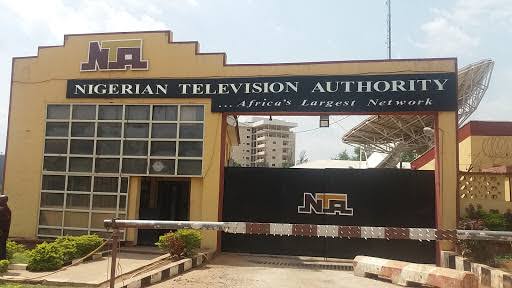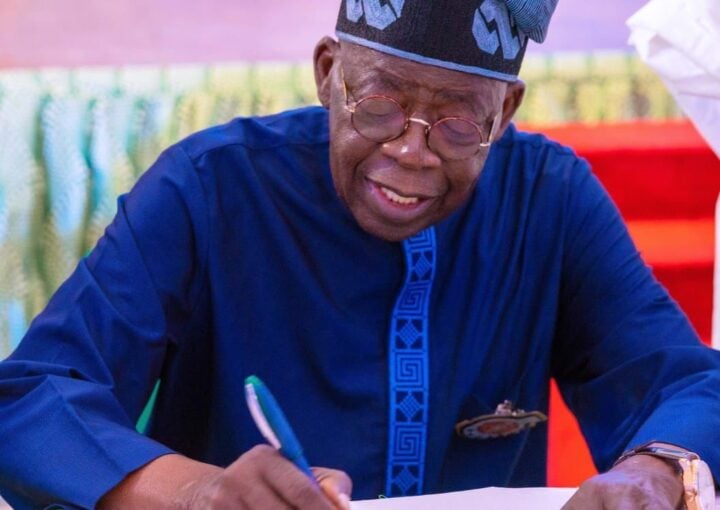The Nigerian Television Authority (NTA) got its fair share of the wave of federal appointments as Mr Bayo Onanuga, the Adviser to the President on Information and Strategy, last Friday, announced the appointment of seven Executive Directors. The announcement led me down the path of nostalgia, a wishful past when NTA was the king of broadcasting and could do only the right things.
The appointees according to Onanuga’s statement include: Ayo Adewuyi, Executive Director, News (actually reappointed), Ibrahim Aliyu, Special Duties, Malam Muhamed Fatuhu Mustapha, Administration and Training, and Mrs Apinke Effiong (Finance).
Others are Mrs Tari Taylaur, Programme, Mr Sadique Musa Omeiza Engineering, and Mrs Oluwakemi Fashina, Marketing. Quite a couple of them came with interesting annotations. Effiong is described as an expert in financial marketing with treasury, management accounting and reporting skills; Taylaur as an audio/visual creator, producer and showrunner; and Fashina was hailed as an integrated marketing communications professional and chartered marketer.
My first observation here is that there seems to be some level of diversity or democratisation of the appointments as against the practice of the past where certain positions and offices at NTA were seemingly reserved for some people. The Executive Directors are expected to contribute their wealth of experience and support the Director General in the person of Mr Salihu Abdul Hamid Dembos in order to give NTA a new direction and some level of creative vitality. NTA needs some fillip at the moment and the writer is only praying that the new appointees are able to offer just that.
Advertisement
Established in April 1976 by Decree 24, which has since become an Act of Parliament, and charged with the responsibility for the provision of television broadcasting in Nigeria and other related matters thereto, NTA has seen some glorious days as the sole government station building facilities across the states of the federation.
Taking maximum advantage of its network strength and putting the abundant talents to great use, NTA promoted flagship programmes from different parts of the country – Masquerade from NTA, Enugu, Hotel de Jordan from NTA, Benin, Cockcrow at Dawn from NTA, Jos, Village Headmaster from Lagos, and much later Mirror in the Sun, Checkmate and Ripples, among others. It was a great time on television. You have to wait religiously for the network news for you to get the major news of the day or, if you work in a newspaper, you must monitor the network news for news break by 9pm.
Something happened in 1992 which NTA was too arrogant to spot. The broadcast sector was deregulated by Decree 38, now an Act of Parliament, National Broadcasting Act CAP N11, Laws of the Federal Republic of Nigeria 2004, to give opportunity to private business promoters to test the perilous waters of broadcasting.
Advertisement
NTA held the development in scorn, even more the regulator, NBC, and those jostling to come into the sector. That marked the birth of Raypower and AIT, Channels Television, Silverbird Television and Rhythm FM, MITV, TVC and much later, Arise TV, in no particular order. The rest, they say, is history, a cliche I don’t particularly like because it gives proof of a people not ready to learn the lessons of history.
The burgeoning content creating sector, now Nollywood, discriminated against by the NTA, quickly shifted camps to the new broadcast operators and a new industry was born, very robust and rambunctious. The new broadcasters invested in new technologies and more modern broadcast practices. NTA was receding into the past and becoming a dodo. It failed to recognise competition when it came and now the government broadcast behemoth has been fighting ever since to cope with that competition. Allegiance has since shifted and so are the TV viewing eyes!
This material is not an elegy for NTA but a call to the new Executive Directors to take a dispassionate look at history and see how they can dig the station out of a self-created hole and begin to reposition it. It’s like waking the Titanic, but can they? It is the responsibility of the President to appoint but the onus rests upon the appointees to perform.
But for the NTA to witness a rebirth, it has to identify its place in history and strip itself of a debilitating arrogance. Is NTA a Public Broadcaster or a Government Broadcaster?
Advertisement
The Nigeria Broadcasting Code recognises three tiers of broadcasting, categorised as follows: Public Service Broadcasting (PSB), Private/Commercial Broadcasting and Community Broadcasting.
Those who are versed in this matter told this writer that the NTA is more of a government broadcaster because it is funded by the government which also makes strategic appointments as was done last week. From inception, the appointments have little to do with professionalism but more with political patronage subsidised by intolerable degree of subservience.
After all, appointments are made by the President through the recommendations of the Minister, who is also empowered by the NTA Act to give directives of general order to the NTA and officials must obey. It can be any order depending upon the mood of the Minister or even his wife!
Under this kind of practice, good journalism suffers, creativity and poetic licence are jeopardised, and accountability enjoys no relevance. No system suffers the aforementioned consequential defects and enjoys rectitude or experience needed growth. NTA enjoys no good standing between the two.
Advertisement
This writer is of the opinion that what the regulator would have recommended for NTA is to operate as a Public Service Broadcaster (PSB). The PSB, the Code states, is broadcasting that is funded and controlled by the public, free from political and commercial interference. The regulator would have wished for NTA to follow best global practices, like the BBC and VOA.
There are examples, which is why I don’t think we have to reinvent the wheel in this part of the world. For instance, the BBC is primarily funded by licence fee and supplemented by incomes from its commercial subsidiaries. The station does not allow advertising because it is not a commercial operator. A standard TV licence currently stands at £169.50, and gives access to a number of TV channels, radio, blogs and other devices.
Advertisement
The monthly fee for 2021/22 was £13.25, and this is how it was spent: Television – £7.29, Radio – £2.09, Online – £1.27, BBC World Service – £1.30, Other Services and Production Costs – £.72, and Licence fee collection and Pension deficit cost – £0.58. It’s all about transparency and for every stakeholder to know that not a single pound sterling is accidented in the process.
The Voice of America (VOA), on the other hand, is funded by the US Agency of Global Media after approval by the Congress. VOA produces digital, TV, and radio content in 48 languages and broadcasting is targeted primarily at non-American outside of the United States. By November 2022, VOA reached 326m weekly across all platforms. That is their policy. But the source of funds is sure and guaranteed and is used for the purpose budgeted for.
Advertisement
An academic told this writer that until the communications policy of the Nigerian government is made clear, the job of NTA will be hazy and made increasingly difficult. Who is NTA broadcasting for? He explained that the station only reflects the government’s point of view, with absolute disregard for opposing views, a development that has driven many faithful viewers away. This situation must be corrected, otherwise it’s fortunes cannot increase, he counselled.
He also suggested that the status of NTA must be made clear. It cannot be a government broadcaster and be canvassing for commercials with commercial operators at the same time. Such practice makes the playing field uneven. The station must be refocused and has to be in full compliance with the regulatory provisions of the NBC.
Advertisement
What are the new Executive Directors bringing to the table? Is it just the same hackneyed story of “we are the biggest network in Africa?” Talk is cheap, my friend, and such belief cannot be evacuated from the platform of pipe-dreams.
I don’t know what feeds my belief that the new appointees can do well. But first they must redefine the status of NTA and try to professionalise its operations. The station must have to embrace robust journalism practices and be able to present balanced views to its audience. I do not know whether NTA tracks its viewership but I am pressed to suggest here that the station is watched only by their sponsors and people without alternatives. The new Executive Directors must do something. I am sure they will earn some garlands at some point.
Views expressed by contributors are strictly personal and not of TheCable.










